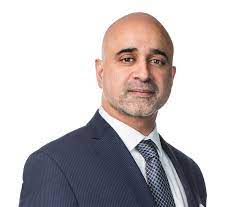The Role of Technology in Advancing Healthcare, According to Dr Sunny Handa MD
Technology has been a game-changer in healthcare in recent years, revolutionizing the way healthcare is delivered and improving patient outcomes. Dr. Sunny Handa MD, a leading healthcare professional, explains the key roles that technology plays in advancing healthcare.
Enhancing Precision and Accuracy in Diagnosis
Technology has enabled healthcare professionals to diagnose
and treat illnesses more accurately and efficiently. For instance, advanced
imaging technologies such as MRI, CT scans, and ultrasound provide
high-resolution images, enabling doctors to make more precise diagnoses.
Moreover, electronic health records (EHRs) have streamlined patient information
management and allow doctors to easily access and share medical data, reducing
errors in diagnosis and treatment.
Improving Access to Care
Technology has also helped improve access to healthcare
services, especially in remote or underserved areas. Telemedicine, for
instance, enables patients to access medical services and consultations through
video conferencing, eliminating the need for physical visits to healthcare
facilities. Mobile health apps have also made it easier for patients to track
their health status, access health information, and receive reminders about
appointments and medication.
Advancing Treatment Options
Technology has opened up new treatment options for patients,
particularly in complex and challenging medical conditions. For instance,
robotic surgery and other minimally invasive techniques enable doctors to
perform surgeries with greater precision and reduced trauma to the patient.
Additionally, advanced medical devices such as pacemakers, artificial joints,
and prosthetics have significantly improved patient outcomes and quality of
life.
Enhancing Patient Engagement and Empowerment
Technology has empowered patients by providing them with
tools and resources to manage their own health. Patient portals, for instance,
allow patients to access their medical records, communicate with healthcare
providers, and schedule appointments at their convenience. Wearable devices
such as fitness trackers and smartwatches enable patients to monitor their
physical activity, sleep patterns, and vital signs, providing valuable insights
into their health status.
In conclusion, technology has transformed healthcare in many
ways, from enhancing precision and accuracy in diagnosis to improving access to
care and advancing treatment options dr sunny handa.
As technology continues to evolve, it will undoubtedly play an even greater
role in advancing healthcare and improving patient outcomes.


Comments
Post a Comment